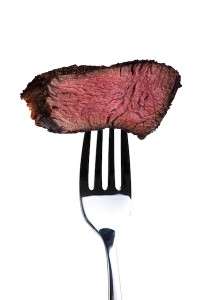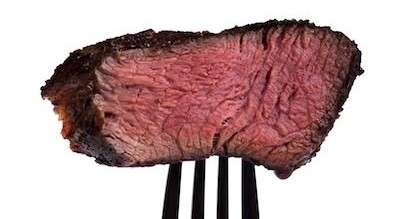Protein is present everywhere in the body: in muscles, bones, connective tissue, blood vessels, skin, hair, and even fingernails. It’s always being broken down as a result of normal physiological processes and therefore, must be consistently replaced in sufficient amounts. Protein also regulates hormone secretion, maintains the body’s water balance, transports nutrients in and out of all cells, carries oxygen, and regulates blood clotting. Unlike carbohydrates and fats, protein contains nitrogen. Sorry, more chemistry here! To build muscle, you must maintain a positive nitrogen balance. And when you have lean muscle tissue, you have a higher metabolic rate, as muscle is a more active thermogenic tissue than fat.
The winning formula:
ADEQUATE DIETARY PROTEIN + STRENGTH TRAINING
By including small amounts of protein in meals and snacks, you can control your appetite, feed your muscles more efficiently, and maintain lean muscle when you’re trying to lose fat. Quality sources of protein include lean cuts of beef, fish, poultry and other meats, eggs, dairy products, and tofu. Good vegetarian sources of protein include spinach and other greens, broccoli, bok choy, legumes such as lentils, chickpeas, kidney and black beans, pumpkin seeds, and grains such as quinoa, amaranth, and buckwheat.
How much protein is best in the diet is a much debated topic, as it is for all the macronutrients (protein, carbs and fats). Holistically, what is best for one person may not at all be right for another, even if those two people both share similar lifestyle and/or wellness goals. My role as a holistic nutrition professional is to help uncover your unique biochemistry to determine the best diet plan for you.

